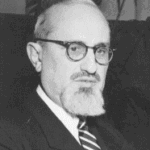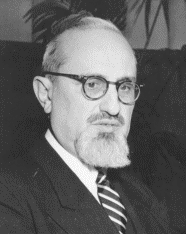 You know how it is: a colleague passes along a link, and that in turn leads you to another link, and before your cup of coffee gets cold, you’re contemplating one more curious snowflake in the information blizzard in which we live.
You know how it is: a colleague passes along a link, and that in turn leads you to another link, and before your cup of coffee gets cold, you’re contemplating one more curious snowflake in the information blizzard in which we live.
First, the link from my colleague. In all honesty, I don’t really care much one way or the other about the media kerfuffle about the late Elizabeth Edwards and her faith, or lack thereof, Christian or otherwise. As far as I know, she was a decent woman who went through a series of disasters in her life—under the intense public scrutiny we usually reserve for the personal lives of politicians and other celebrities who have distinguished themselves by no accomplishments except becoming famous. Mrs. Edwards always seemed to me a strong and gracious woman, poised and eloquent under pressure. She gave a public impression of genuine intelligence (a quality so rare in political life that it is often mistaken for integrity) which her husband conspicuously lacked, and I wondered why she wasn’t the candidate and he the supportive spouse (in much the same way I would have preferred having Lynne Cheney on a ballot than her husband). But being neither her pastor, nor her friend, nor her close neighbor, I have nothing to contribute to a conversation about Edwards’ private or religious life.
But one point, toward the end of the blog my colleague passed along, sent me off to read some comments about a recent survey about American religion. It turns out, according to this study, that religious people are more satisfied with their lives than non-religious people. But the reason for their satisfaction seems to have less to do with theological truth or their relationship with God, than with the friendships and connections with other people at church. At first glance I was ready to toss these assertions aside as just another pop-culture effort to “debunk” religion (of which there are plenty!), but one of the authors of the study, Robert Putnam of the Harvard Kennedy School and author of Bowling Alone: The Collapse and Revival of American Community, is a careful scholar whose work I respect, and by no means prone to a trendy anti-religious bias. So what have Robert Putnam and Chaeyoon Lim discovered about religion in America that I should know?
First, it isn’t really surprising when sociologists ask questions about religion and discover answers which emphasize society rather than theology. This isn’t a question of methodological bias, but simply the result of studying a very complex subject (religion) from a variety of disciplinary angles. It is as natural (and as appropriate) for sociologists to come up with sociological answers as for historians to trace historical roots or theologians to reflect on theological dimensions—of the same questions.
 And what these sociologists remind us theologians is that human beings are social creatures, dependent for their well-being not only on a restored vertical relationship with God in Christ, but also in many ways on their neighbors. That is certainly not all there is to say about who we are and what we need for a full, satisfying life. But we dare not conceive of ourselves as mere individuals: the Biblical view of healthy human existence is that of “the lonely man of faith” (to use Rabbi Soloveitchik’s phrase) who needs and nourishes relationships with other people and with all creatures.
And what these sociologists remind us theologians is that human beings are social creatures, dependent for their well-being not only on a restored vertical relationship with God in Christ, but also in many ways on their neighbors. That is certainly not all there is to say about who we are and what we need for a full, satisfying life. But we dare not conceive of ourselves as mere individuals: the Biblical view of healthy human existence is that of “the lonely man of faith” (to use Rabbi Soloveitchik’s phrase) who needs and nourishes relationships with other people and with all creatures.


Leave a Reply
You must be logged in to post a comment.